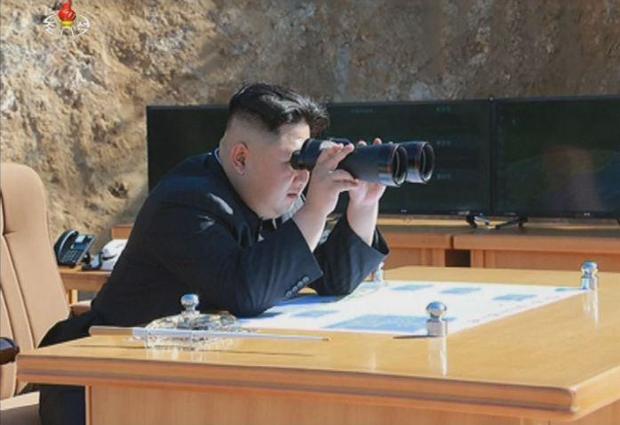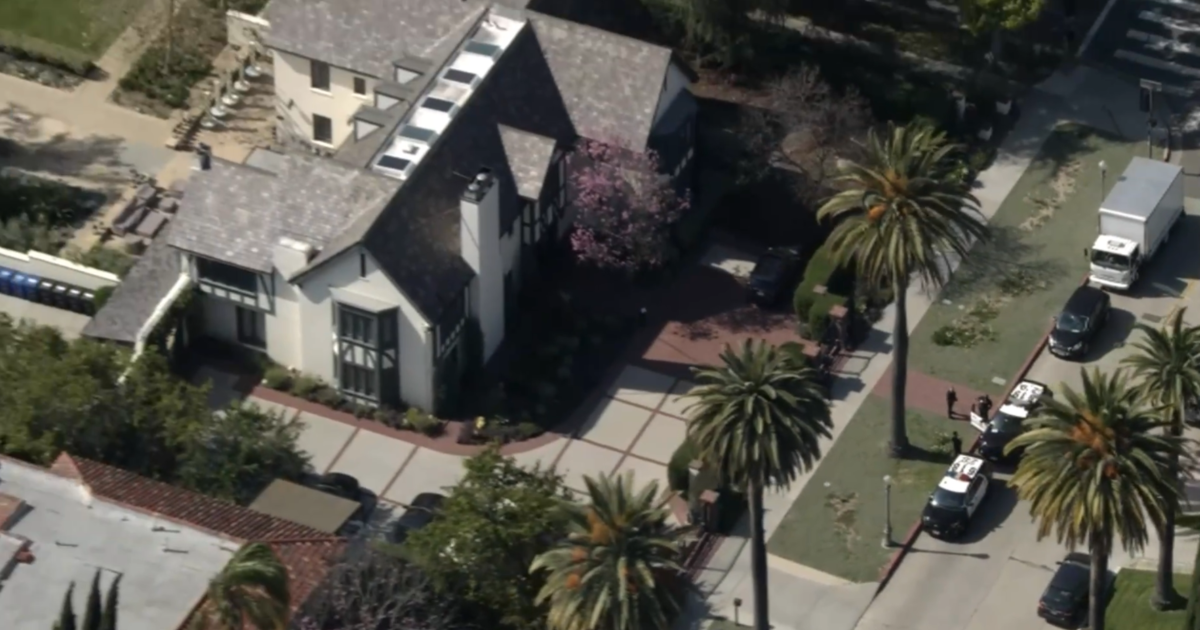North Korea claims 1st intercontinental ballistic missile test was success
SEOUL, South Korea -- North Korea claimed to have successfully tested its first intercontinental ballistic missile (ICBM) in a launch Tuesday, a potential game-changing development in its push to militarily challenge Washington -- but a declaration that conflicts with South Korean and U.S. assessments that the missile had an intermediate range.
The North has previously conducted satellite launches that critics say were disguised tests of its long-range missile technology. But a test-launch of an intercontinental ballistic missile, if confirmed, would be a major step forward in developing a nuclear-armed missile that could reach anywhere in the United States.
As CBS News correspondent Ben Tracy reports, North Korean state television's always-enthusiastic, pink-clad announcer heralded the launch, calling it an historic event. She said the country's leader Kim Jong Un personally oversaw the successful test launch of an ICBM that the North is calling the Hwasong-14.
The launch appeared to be North Korea's most successful missile test yet, and a weapons analyst said such a missile could be powerful enough to reach Alaska.
South Korean President Moon Jae-in said, however, that the missile was believed to be of intermediate range, but the military was still trying to verify whether it might have been an ICBM. South Korean analysts said it was likely a retest of one of two intermediate-range missiles launched earlier this year.
A spokesman for President Moon's office said Tuesday that, "from our understanding, this missile would be an IRBM (Intermediate-range Ballistic Missile), just like the one they fired around mid-May, but we also believe that they are in the middle of developing the ICBM."
The U.S. military's Pacific Command said early Tuesday that it had detected the launch of a "land-based, intermediate range ballistic missile," but noted that it was still "working with our Interagency partners on a more detailed assessment." Later Tuesday, CBS News national security correspondent David Martin said U.S. military and intelligence officials were "sticking by" their initial assessment.
Martin noted, however, that if it is eventually determined that the missile was an ICBM, it could turn into a "4th of July crisis" for the Trump administration to handle.
U.S. missile scientist David Wright estimated, though, that the missile, if the reported time and distance are correct, would have been on a very highly lofted trajectory and could have a possible maximum range of 4,160 miles, which could put Alaska in its range if fired at a normal trajectory.
Pyongyang has a reliable arsenal of shorter-range missiles, but is still trying to perfect its longer-range missiles. Some analysts believe the North has the technology to arm its short-range missiles with nuclear warheads, but it's unclear if it has mastered the technology needed to build an atomic bomb that could fit on a long-range missile.
The launch seems designed to send a political warning to Washington and its chief Asian allies, Seoul and Tokyo, even as it gives North Korean scientists a chance to perfect their still-incomplete nuclear missile program.
It came on the eve of the U.S. Independence Day holiday, days after the first face-to-face meeting of the leaders of South Korea and the United States, and ahead of a global summit of the world's richest economies.
U.S., South Korean and Japanese officials say the missile, fired from North Phyongan province in the North's western region, flew for about 40 minutes and reached an altitude of 1,500 miles, which would be longer and higher than any other similar tests previously reported. It also covered a distance of about 580 miles.
Soon after the launch, President Trump responded on Twitter, saying, "North Korea has just launched another missile. Does this guy have anything better to do with his life? Hard to believe that South Korea and Japan will put up with this much longer. Perhaps China will put a heavy move on North Korea and end this nonsense once and for all!"
"This guy" presumably refers to North Korean leader Kim. China is North Korea's economic lifeline and only major ally, and the Trump administration is pushing Beijing to do more to push the North toward disarmament.
Tracy reports, however, that China may not be so eager, or even willing, to help; Beijing is furious that a U.S. warship recently sailed within 12 nautical miles of a disputed island in the South China Sea, which Beijing claims as its territory. The U.S. plan to sell $1.4 billion worth of weapons to Taiwan is also angering China.
So far, Tracy says the Chinese government is just calling for "restraint" from both sides, and for the U.S. to start talking to North Korea directly to resolve the problem.
In a clear sign that China's government likely does not intend to increase pressure on North Korea immediately -- at least not without something in return -- President Xi Jinping and Russian counterpart Vladimir Putin met after the launch on Tuesday and issued a joint statement calling for a freeze of the North's missile and nuclear programs, but only in conjunction with a cessation of all joint U.S.-South Korea military exercises.
China has just taken over the rotating presidency of the United Nations Security Council for the month of July, and therefore sets the council agenda. CBS News' Pamela Falk reports that, if an ICBM test is confirmed, there will be more pressure on China to call for emergency meetings at the Council to discuss new sanctions, which China has been reluctant to do. Several Council members told CBS News they're waiting for confirmation of an ICBM test before they make any calls for an emergency session.
Just last week, South Korean's Moon and Mr. Trump met for the first time and vowed to oppose North Korea's development of atomic weapons.
Japan's Prime Minister Shinzo Abe sharply criticized North Korea for the launch. "The latest launch clearly showed that the threat is growing," Abe said.
Abe, who talked by phone with Mr. Trump on Monday, said the two leaders plan to seek cooperation from world leaders when they attend a G20 summit in Germany.
Lee Illwoo, a Seoul-based military commentator, said the missile traveled for a far longer period of time than if it would have been fired at a normal angle. A North Korean scud-type missile would land in its target site within 10 minutes if fired at a standard angle of 45 degrees. Lee said it's likely that North Korea fired either a Hwasong-12 missile or a solid-fuel Pukguksong-2, both of which were tested in May.
On May 14, North Korea launched the Hwasong-12 missile, which its state media later said flew as high as 1,310 miles and landed in a targeted area in the ocean about 490 miles from the launch site. On May 21, North Korea also tested the Pukguksong-2, which traveled about 310 miles.
The Korean Peninsula has been divided since before the 1950-53 Korean War. Almost 30,000 U.S. troops are stationed in South Korea.
Tuesday's launch is the first by the North since a June 8 test of a new type of cruise missile that Pyongyang says is capable of striking U.S. and South Korean warships "at will."
Since taking office on May 10, Moon has tried to improve strained ties with North Korea, but the North has continued its missile tests. Pyongyang says it needs nuclear weapons and powerful missiles to cope with what it calls rising U.S. military threats.




